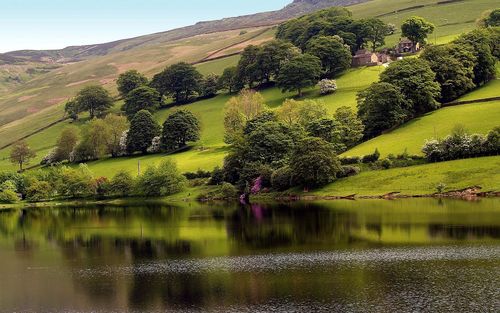Norway is a country that has a rich cultural heritage that dates back to the Viking era. Despite the changes the country has undergone over the years, Norwegian culture continues to thrive and serve as a symbol of national identity. The country is home to a variety of traditions and customs that have evolved over centuries of living in a harsh and unforgiving environment.
One of the most notable aspects of Norwegian culture is their appreciation for nature. The country is known for its magnificent fjords, mountain ranges, and glaciers that are all preserved and valued by Norwegians. Despite the country’s rapid advancements in technology, Norwegians still find time to connect with nature through activities like hiking, skiing, and camping.
Perhaps the most iconic image of Norwegian culture is the Viking warrior. The Vikings were seafaring explorers who raided and colonized various parts of Europe during the middle ages. While the Viking era has long since passed, their legacy lives on in Norway through various cultural traditions. For instance, the annual Viking Festival in Gudvangen brings together actors and enthusiasts to celebrate the Viking way of life.
Norway is also home to numerous traditional festivals that are celebrated throughout the year. One of the most well-known is the national day of Norway, which is celebrated on May 17th. The day commemorates the signing of the Norwegian constitution in 1814 and is marked by parades, speeches, and cultural performances.
Similarly, the Christmas season in Norway is steeped in tradition. One of the most cherished customs is the baking of Christmas cookies and cakes, such as pepperkaker (gingerbread biscuits) and julekake (Christmas bread). Families also gather together to decorate their homes with lights and ornaments, while children look forward to the arrival of Julenissen, the Norwegian version of Santa Claus.
In recent years, Norwegian culture has become increasingly diverse and multicultural. Norway has a relatively high number of immigrants, with many coming from neighboring Sweden and Denmark. This has led to the development of new cultural traditions and celebrations, such as the Iranian New Year (Nowruz) and the Islamic feast of Eid al-Fitr.
In conclusion, Norwegian cultural traditions serve as a testament to the country’s heritage and national identity. From the Viking era to modern-day celebrations, Norway’s customs reflect its people’s resilience, love for nature, and appreciation for cultural diversity. As the country continues to evolve, so too will its traditions, but their significance and importance will undoubtedly endure.
(Note: Do you have knowledge or insights to share? Unlock new opportunities and expand your reach by joining our authors team. Click Registration to join us and share your expertise with our readers.)
Speech tips:
Please note that any statements involving politics will not be approved.
